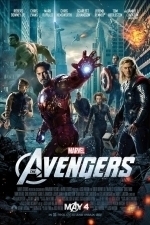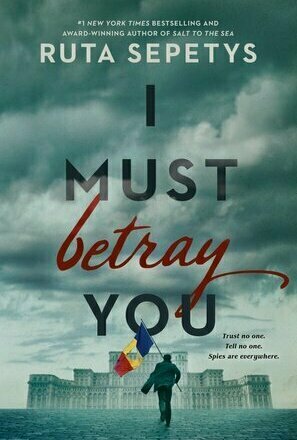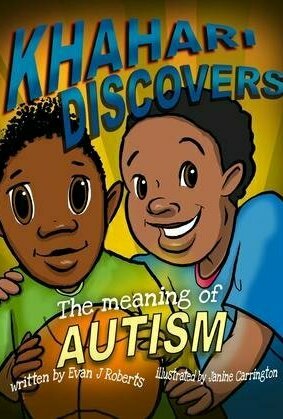Darren (1599 KP) rated A Walk Among the Tombstones (2014) in Movies
Jun 20, 2019
Kenny tales the story of what happened and how gruesome the murder was, this brings Matt into the case to track down the people responsible. Using all his skills he starts the investigation by questioning the locals. The killers prove to be professionals who cover their tracks when committing their crimes. When it becomes apparent they have been doing this for years Matt finds himself investigating cold cases. Tracking down the leads he does come up with a potential name and a place he could meet them, but nothing could prepare him for the nature of the men.
A Walk Among the Tombstones starts very nicely with the broken protagonist trying to make up for something he could never actually make up for, it is hidden from us but we do see he has personal problems. The whole drug dealers being targeting by serial killers also works nicely, giving us a chance to keep guessing on whether it is actually a large scale revenge type thriller than Matt is stuck in the middle off. It goes downhill slowly because of the pace and then turning it into the simple idea that they are just two killers doing it for fun. It is sad because this had a lot of potential from the start but in the end just fizzles out. (6/10)
Actor Review
Liam Neeson: Matt Scudder a private detective who against his better judgment ends up investigating serial killers who enjoy nothing more than kidnapping and killing their victim even if they get their money. He is a former detective who has been recovering from his alcoholism which cost him his job. Liam does do a good job in the role and goes away from the new action star he has created. (7/10)
matt
Dan Stevens: Kenny Kristo drug trafficker whose wife was killed and hires Matt to find the people responsible for it, it will mean risking his connection to help expose the truth. Dan does a good job as the mobster out for revenge for a crime that is personal rather than work related. (7/10)
kenny
Support Cast: A Walk Among the Tombstones has a supporting cast that includes the two killers who are very much evil in what they do, we have other mobsters who are the victims of those killers and we also have a street wise kid trying to help Mark out. They all help the story flow along very well.
Director Review: Scott Frank – Scott does a solid job directing this to make it an interesting thriller with a very dark side to it. (6/10)
Crime: A Walk Among the Tombstones enters into the crime world without going too far over the top with its double crossing, instead focusing on one angle the whole way through. (7/10)
Mystery: A Walk Among the Tombstones does keep you guessing to what would be the motives of the characters creating a nice mystery about the story. (8/10)
Thriller: A Walk Among the Tombstones starts off pulling you in especially when you hear about the murdered wife but afterwards slight starts to fade away. (7/10)
Settings: A Walk Among the Tombstones creates a world that is similar to 1999 New York. (7/10)
Suggestion: A Walk Among the Tombstones is one to try and the fans of Neeson will be watching this, it might not keep everyone happy because it isn’t as dark as its source material. (Try It)
Best Part: The shock of what Kenny finds in the boot of that car.
Worst Part: Falls away by the end.
Believability: No (0/10)
Chances of Tears: No (0/10)
Chances of Sequel: No
Post Credits Scene: No
Similar Too: Cold in July
Oscar Chances: No
Box Office: $53 Million
Budget: $28 Million
Runtime: 1 Hour 54 Minutes
Tagline: People are afraid of all the wrong things.
Overall: A Thriller That Hits Hard Early but Tires Near the End
https://moviesreview101.com/2015/01/26/a-walk-among-the-tombstones-2014/
Phillip McSween (751 KP) rated The Avengers (2012) in Movies
Mar 9, 2019 (Updated Jun 20, 2019)
In Marvel’s The Avengers, Earth’s mightiest heroes take on the evil Loki who is hell-bent on world domination.
Acting: 10
Beginning: 10
Characters: 10
The gang’s all here and what a gang. I appreciate that each of these superheroes are battling their own inner demons which affects how their characters interact with the other heroes. it’s what makes them a good team. They come to understand each other’s dysfunctions and deal with it. This is the first movie where you start to see the team use their strengths in tandem and work together as a team. Their initial lack of chemistry is hilarious to watch as they are forced into a unit.
Cinematography/Visuals: 10
Conflict: 10
Genre: 10
Bringing all these characters on the big screen at once was a monumental accomplishment. It was a risk that paid off. A damn good movie was made here and deserves a ton of credit for setting a standard in the way superhero movies should be done.
Memorability: 10
Pace: 10
Plot: 10
The story weaves together the backstories of the other characters in seamless fashion. While there aren’t many twists and turns to throw you off or keep you guessing, I would also argue that twists weren’t necessary for a film like this. Tell the story you need to tell and if we can see some awesome superpowered battles along the way, great! Job well done here.
Resolution: 10
Solid ending capped off with some fun end-credit scenes that pave the way for films to come. The entire movie is meant to entertain and I was happy that they finished strong. It’s a capper that leaves you wanting to see these guys team up again.
Overall: 100
Seven years later and the Marvel Cinematic Universe is still going as strong as ever. I’m going to see Captain Marvel tomorrow, a film that wouldn’t even be possible without the success of The Avengers and other lesser-known properties like Guardians of the Galaxy. Seven years later and this movie still never ceases to excite me and make me laugh at the same time.
Movie Metropolis (309 KP) rated Dad's Army (2016) in Movies
Jun 11, 2019
Now, Dad’s Army like so many classic TV shows is getting the silver screen treatment, but does this modern-day reimagining, with an all-star British cast live up to the series that delighted so many for so long?
The movie adaptation of Dad’s Army follows on from the TV series, taking place just before the Second World War comes to an end. In Walmington-On-Sea, the Home Guard, led by Captain Mainwaring must track down a German spy, who is intent on swaying the war in their favour.
A whole host of British talent, young and old, star and each and every one of them slots perfectly into the well-worn shoes of classic characters. From Michael Gambon’s effervescent performance as Godfrey and Toby Jones’ faithful portrayal of Mainwaring to Inbetweeners star Blake Harrison taking on the role of Pike, it feels as though the casting team really put a lot of thought into getting the characteristics right.
It doesn’t stop there, Welsh beauty Catherine Zeta Jones, TV favourite Sarah Lancashire and Victor Meldrew’s long-suffering wife Margaret (Annette Crosbie) all make appearances for the fairer sex, with each bringing something to the table.
The scenery is beautiful, filmed just a couple of hours up the road in Bridlington, East Yorkshire, the normally vibrant seaside town is transformed into 1940s Walmington with an enviable amount of detail. Elsewhere, the White Cliffs of Dover are replicated exceptionally at Flamborough on the east coast.
Unfortunately, the story is a little on the light side, barely managing to stretch to the film’s slightly overlong running time. This is an issue that blights many TV to film projects and it feels like this unbelievably talented cast is somewhat wasted with a fairly run-of-the-mill plot.
It also feels like the comedy is on rations. Yes, it’s nostalgic with constant references to its small-screen counterpart, but it comes across like the producers were too busy trying to shoehorn as many elements of the TV series into the film, without concentrating on what Dad’s Army was all about – laughs.
Nevertheless, there is plenty to enjoy despite a lack of giggles. The acting is, as said previously, remarkable with fans of the series and newcomers alike being able to enjoy the warm, typically British feeling these thespians bring to the film.
Overall, Dad’s Army is a decent, albeit slightly underwhelming, effort in bringing one of the most popular TV shows of all time to the big screen. Its talent and casting are undeniable and the filming style is very impressive, but a lack of attention to the plot and a comedy drought stop it short of achieving what it clearly set out to do.
https://moviemetropolis.net/2016/02/07/full-of-wasted-british-talent-dads-army-review/
Ali A (82 KP) rated I Must Betray You in Books
Feb 7, 2022
Set in late 1989 communist Romania, 17-year-old Cristian is forced to become an informer by the secret police in exchange to help his family. While he deals with the guilt and paranoia of being an informer, Cristian also risks everything to let the world know what is happening in Romania. But what is the cost of the revolution?
As usual, another section of history I didn’t really know anything about until Ruta Sepetys wrote a book about it and now I’ll be doing a ton of research about it this weekend. I was in middle school and high school in the 2000s, so I kind of understand why I probably never really learned much about this if they didn’t unseal files for 15 years… though I do remember learning about Nadia Comăneci leaving the country? But I don’t remember Nicolae Ceaușescu or the horrors of his regime.
Rita Sepetys is one of my favorite authors - if she writes it, I know I’m going to read it, get immersed in a new part of history I probably wasn’t aware of, and learn something new. I know Sepetys does a ton of research on each of her books, and this one is no different. She lets you know it is a work of fiction, but that a ton of research went into the novel and then she lists resources at the end of the book. Knowing how much research was done for this and matching it with a narrator who captivates the readers - I couldn’t put this book down.
The chapters were mostly short and a quick read, but that matched with the franticness of Cristian’s life. You slowly see his eyes opening to the fact that what his country is doing to him and his countrymen is not right and how much they had been lied to to keep them in line. You felt the same suspension he felt as he tried to figure out who he could really trust.
Please read this book (and other titles by Sepetys as well) and learn about an aspect of history that most likely wasn’t taught much in school in a way that’s well written and well researched.

Man Yoga - Yoga Video Workouts For Men Adults
Health & Fitness and Lifestyle
App
**The most popular Yoga app for Men in the App Store with over a million downloads** Made by men...
BookInspector (124 KP) rated What Lies Within in Books
Sep 24, 2020
When I read the description of this book, I found it very catchy, and it got me really intrigued of what this book can offer. I had this ARC for a while now, and I am not sure was anything edited before publication, so this review is my opinion of the copy the author sent me.
The main character in this book is Tyler, along with his younger brother Devil, they are killing child abusers, who have been released by police due to lack of evidence. Unfortunately, their “good deeds” don’t get unnoticed by the police, and the chase begins. I really liked Tyler as a character, I liked his personality, his manners, and his way of thinking was very amusing and interesting to follow throughout the book. I really loved his complex relationship with Devil, and wish to adjust in society. This novel was told from multiple perspectives – Tyler’s and Police investigators. I preferred Tyler’s parts, I think they opened his character very nicely and was more interesting to read than the police investigation.
The plot of this novel was appealing but not fully utilized. I think this book has lots of potentials, and by adding some deeper parts about Devil’s identity, where he came from, it would’ve been better. I think Smith did a good job by incorporating Devil, but the truth was given away too early. Another thing which disappointed me was the investigation, I was not very happy with how detectives were working, I didn’t feel the suspense breathing through the pages, and I think they could’ve done better. However, I think this book would make a pretty interesting film because it has the right amount of action and a riveting suspect. There were some interesting turns and twists in this novel, which kept my interest going. What really struck me, was the topics which Smith was discussing in this book, such as child abuse; how mental illness affects children, when there is nobody to help; children homelessness; survival and adjustment in the society.
This book was very easy to read, and the language used in this novel was not complicated. It has short chapters and it got me binge-reading all the way through. These short chapters kind of made me keep going to find out, what else Tyler has planned. The ending of this novel is unexpected, but absolutely impossible and compromises what detectives said, once they entered Tyler’s flat. I was very pleasantly surprised, that at the end, the author gave a little description of all the characters who were mentioned in this book. I think it was pretty awesome. So, to conclude, I think this novel has a really engrossing message to share with the world, through these intense characters and the struggle between what is good and what is bad in this world. I do recommend to read it and to figure out for yourselves, how people try to cope in this world after something horrible has happened to them in the past.
I would like to throw in a disclaimer, there is murders, violence, child abuse scenes in this book.

Knox (Monsters of Veridia #1)
Book
What happens when your fictional crush comes to life? Adrian is about to find out. When he...

AQA A Level Business 2
Book
This textbook has been fully revised to reflect the 2015 AQA Business specification, giving you...

Fine Cooking Magazine
Food & Drink and Magazines & Newspapers
App
Enjoy the Fine Cooking digital edition and savor the complete magazine plus bonus features such as:...
Lindsay (1793 KP) rated Khahari Discovering the Meaning of Autism in Books
Jun 16, 2024
The boys decide they want to play. Kharhari goes out to play basketball with his friend Omari. When they do, Omari introduces Jayden to Khahari, and they start playing. However, a misunderstood happens when Jayden goes after the ball and takes it inside. Will Khahari and Omari play again, or will a misunderstanding get in the way?
When playing, misunderstandings happen. Things go awry. Will learning about something you do not know and trying to have fun help Khahari and Omari come to an understanding? Can they help teach Jayden how to share by taking turns and playing a game?
As the story unfolds, the children learn and understand each other. This book is about Khahari, Omari, and Jayden. It shows that children with autism are not so different in their desire to play. They just have a unique way of understanding. By asking questions and learning about themselves, your child can help educate all children. Khahari is learning about autism, and Jayden is learning about sharing and taking turns. And together, we're all learning about empathy and inclusivity.
Omari and Khahari, through their understanding of the challenges and struggles of autism, strengthen their friendship and help each other out. This is a lesson all children can benefit from. The author has made it simple and easy to understand and read, ensuring that the journey of learning is enjoyable for children. And the best part? The fun and learning don't end with the book. They continue in real life, where understanding and empathy can make a world of difference.





